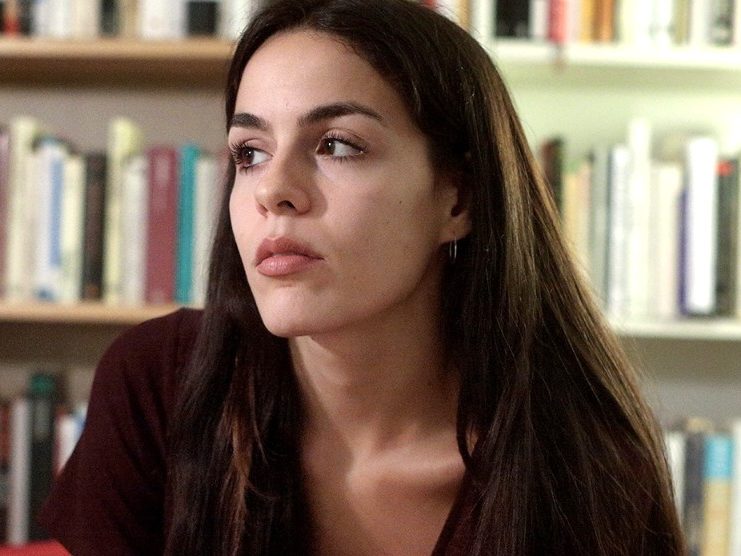Last month Adriana Murad Konings published her first novel Los Dias Leves – the writing project of her undergrad and masters. I took the opportunity to have a conversation with her about her novel, her process of writing it, of publishing it, the lessons learnt, her PhD, and the creative inputs that shaped it. The following is the result.
For Adriana, “it all started with a character.” A big reader of novels, especially American and British, Adriana’s reading of Flannery O’Connor sparked a creative urge to feature the American novelist in her own story.
Winning a grant from the Spanish government to write a novel, Adriana was given a period of 6 months to finish her novel. This made writing a “priority.” Drawing influence from Nabokov’s Pale Fire and Siri Hustvedt’s The Blazing World, the novel created is a somewhat academic amalgamation of literary comment, absurdist humour and a thought experiment.
The bare bones of the novel are as follows: in a small town in the Spanish Guadarrama mountains, a naïve literature student reluctantly embarks on the project of writing an article about an old, grouchy author Frances Donnell (based on O’Connor). And from there the story unfolds, using Frances as an exploratory device for the post64 world in a “funny clash.”
At the book launch of the novel, Adriana’s novel was described as “a book about the action of writing a novel” – the author accepts the postmodernist diagnosis, adding to it that her novel is “about the passion of reading and creating stories, but also the power of literature to distract you from other things.”
Adriana is a morning writer. When writing, she limits her writing time to “2-3 hours in the early morning,” before starting her PhD work. But ideas about the novel absorb her entire day, especially on walks with her two dogs. This creative process has enabled Adriana to write not only Los Dias Leves (the “novel of my undergrad and masters”) but, to my complete surprise, also another novel.
I asked Adriana if at any time she felt like throwing her writing projects away. “All the time!” she joked. But the frustration and exhaustion of deleting and refining a piece of work into something that you can feel proud of is met by the pure enjoyment and passion of the actual writing – and of the end product. For her, the experience is “liberating.”
“A writer is a person who deletes a lot,” she quipped.
But something else is needed to complete this writing journey: the publishing house. Examples of brilliant writers having immense difficulty publishing are numerous and distressing. Adriana had her own struggle.
Met by a publishing industry that preferred (for marketing reasons) to publish pseudo-creative books by the already famous, Adriana was left with the “unpublished manuscript in her desk” feeling at odds with the literary world.
The novel had been shortlisted twice for prestigious Spanish literary awards, such as the Premio Herralde de Novela, and yet there was not a publisher to be found. This seemed a contradiction in terms. “I got angry at the publishing world,” doubting “whether it made any sense,” she admitted. Despite this, she learned then that she “needed it.”
Interest in the novel’s publication was only piqued again once she embarked on the publishing journey for her second novel. With contract in hand, the publisher recollected the earlier Los Dias Leves and, in a shocking twist, ventured to publish that instead. And there Adriana conquered what has also almost stopped Animal Farm, The Wind in the Willows, and In Search of Lost Time from being published, in quite the journey.
Writing a novel is a daunting task – one exacerbated in this case alongside the writing of a PhD on the theme of “suspicion” in the post45 novel. But it was made easier in a few ways. She took inspiration from the authors and themes discovered throughout her education. Her passion and inclination towards stories – “always imagining” – egged her further. And her ultimately relaxed attitude towards writing – focusing on enjoying the process – allowed her to endure hardships of writing. “Literature is something playful for me,” she added.
Interestingly, Adriana noted that having written a novel she now has a different perception of literature, and has found the task of her dissertation far “less daunting.” Writing a novel has rewarded her with the endurance for writing “page after page, chapter after chapter.”
The publishing of her novel comes at a good time for Adriana as she is about to finish her final dissertation. The entire journey is an inspiring one. Adriana acted on an inspiration and an impulse to create something new.
Nearing the end of the interview, Adriana said that for those with a creative urge, “reading will naturally lead to writing” (as all writers begin), and therefore she recommends that you should read excessively (possibly even her novel if you are fluent in Spanish)!
